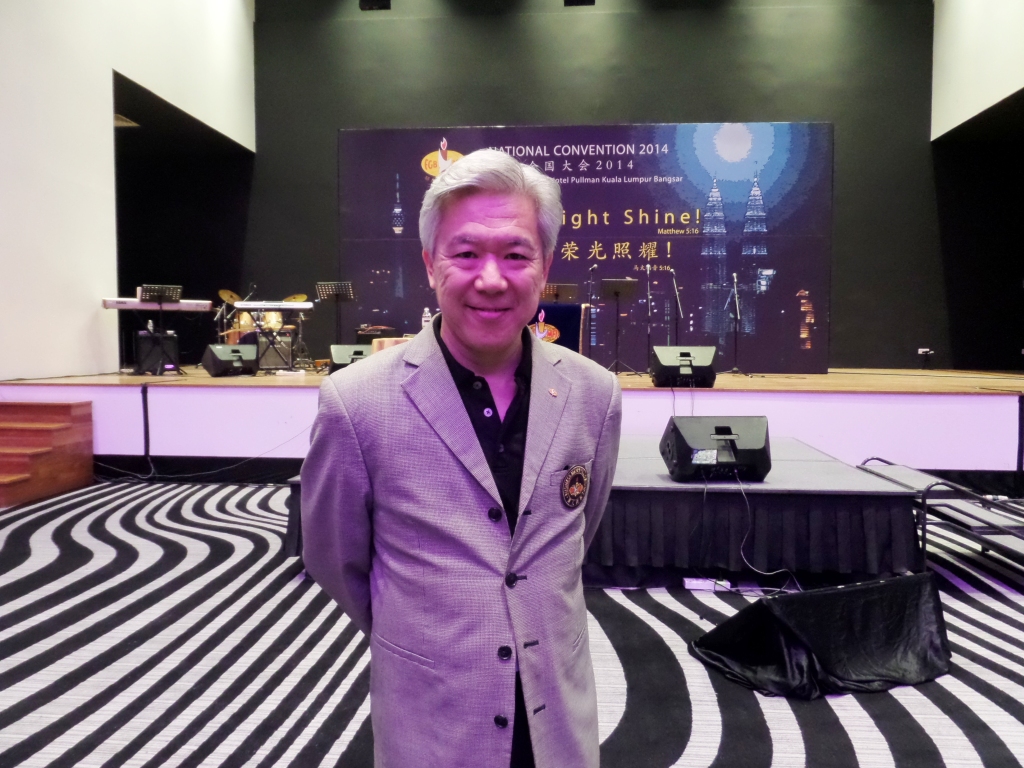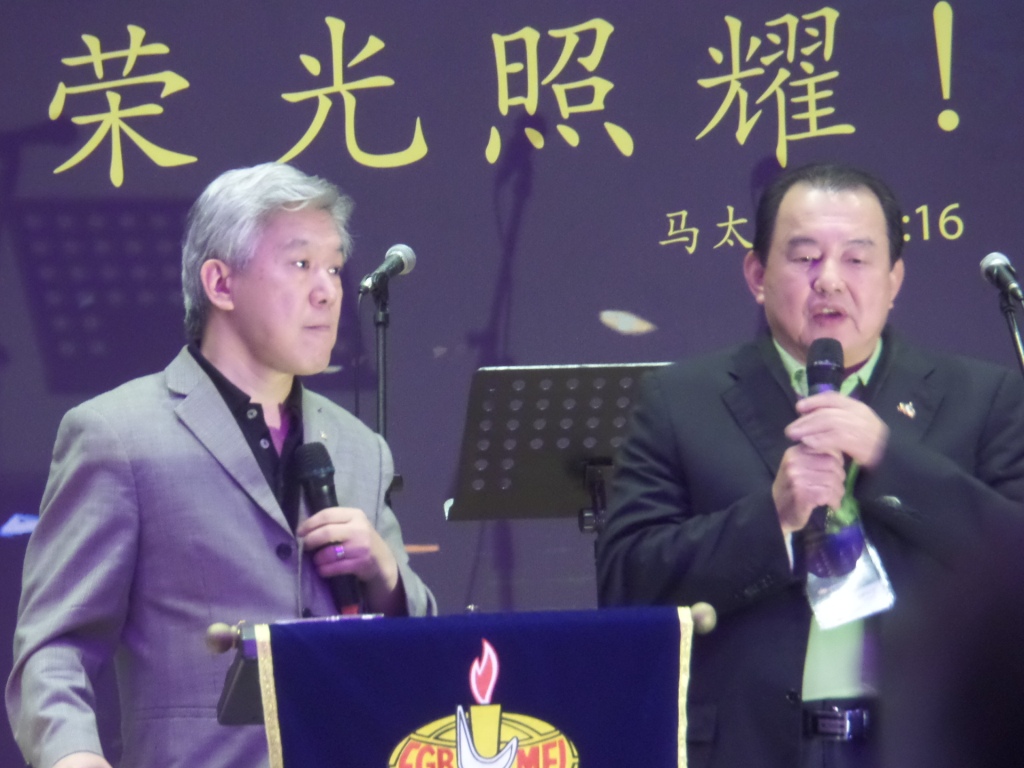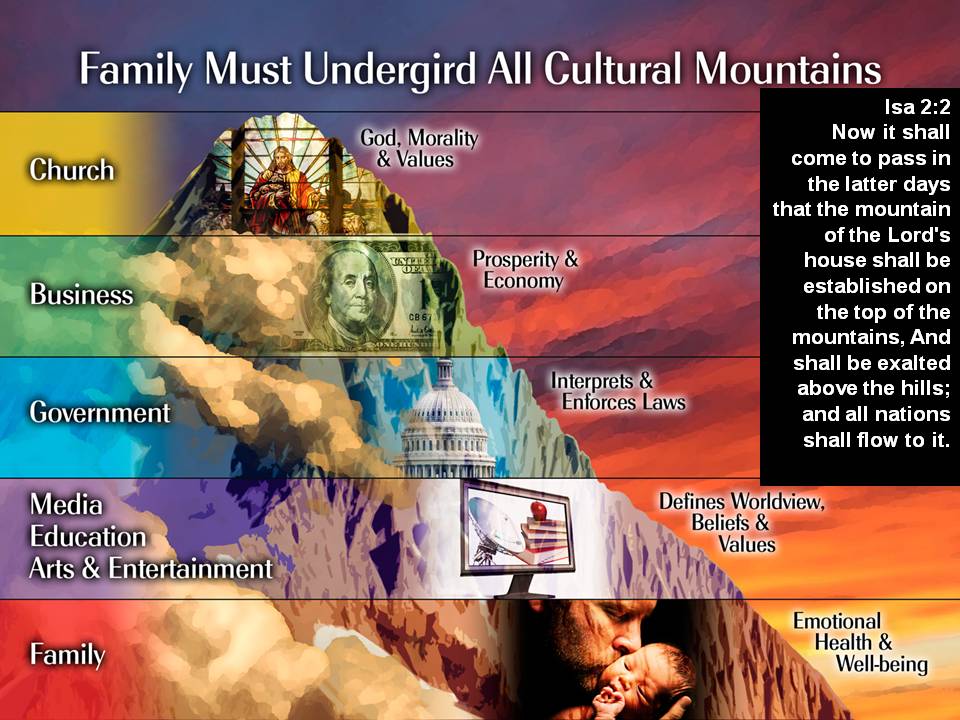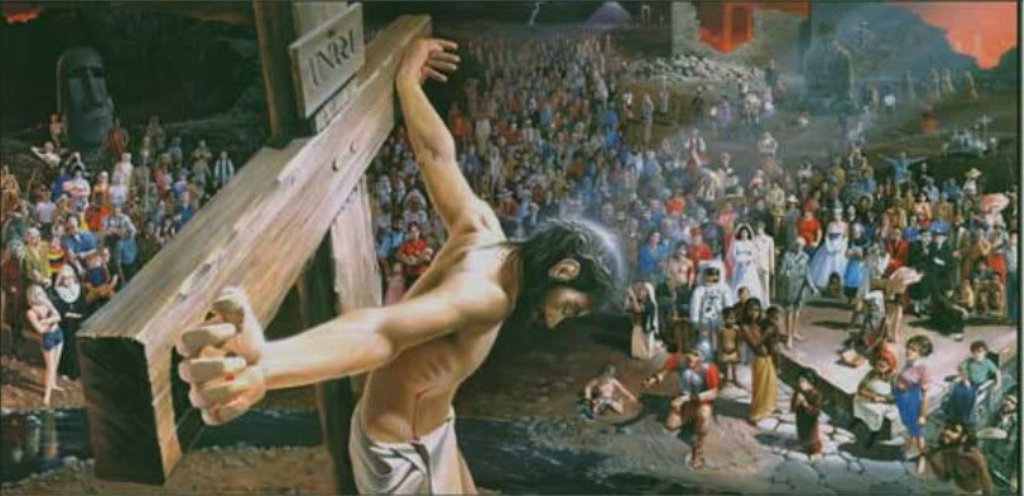
3 September 2014 by Jason Law CM –
The Full Gospel Business Men’s Fellowship (FGBMF) was formed in December 1952 by Demos Shakarian from a vision in which he saw millions of ordinary working men, eyes shining and heads and hands raised towards Heaven, loving and glorifying God.
From that start and its inception in Malaysia in 1978, the FGBMF has grown to be one of the outstanding business men’s organizations in the world, with a prominent difference, and one that matters. On the 7-9 August 2014, the Malaysian FGBMF had their 2014 National Convention in Pullman Hotel with its theme taken from the calling found in Matthew 5:16; ‘Let His Light Shine!’

Among the guest speakers was Dr Hugo Chan. Dr Hugo is the National Director of FGBMFI Hong Kong. Besides being member of the Election Committee under the Chief Executive of Hong Kong, he is Chairman of Hong Kong Character City Movement, the Founding Vice President of Hong Kong Professionals & Senior Executives Association, and a prominent lawyer.

In his message, Dr Hugo spoke about the Christian’s role in releasing the River of Life, and the need to return our culture back to its Hebraic roots. What he meant was not that we needed to be bound by the Old Law again, but rather, in a central pattern of the way we think. To understand Dr Hugo’s context, we need to remember what Hebrew culture is and return to the essences of God.
Our Battle
It is a spiritual battle we fight, and our fight is in the spiritual dimension. As Christians, we are called to redeem and reconcile mankind back to God. And the way to do this is by releasing God’s River which brings forth the River of Life.

The greatest calling for Christians is not to make religion but to make disciples. That was the main problem with the Pharisees in Jesus’ day. In the midst of religion, are we hindering others from the discipleship process? ‘The Religious Spirit is causing a lot of problems for us today,’ Dr Hugo pointed out. ‘In the midst of all our religious activities and programmes, and withdrawing from the world, have we lost our relevance?
‘The moment we become Christians, we have a responsibility. Christianity is a 100% thing, and it is all-encompassing. The trouble is many of us have learnt to wear different masks for different times and people we meet. Are we the same people we are at home and work as we are in church?’ Dr Hugo reminded.

In Dallas Willard’s book, The Great Omission, Dallas wrote that the modern church has grown to make Christians for church membership. That was not the purpose God called us as Christians. It is a myth that we can be Christians without being disciples, and making disciples (ie the Great Commission) should be our calling card. Are we still making disciples or have we withdrawn into the confines of our church and lost our relevance?
The Seven Cultural Mountains
‘The city of Jerusalem had 9 gates and each of them signified something. Today, we have the seven cultural mountains (Arts & Entertainment, Business, Education, Family, Government, Media, Religion). We cannot be confined to the church, just going to church and worshipping and carrying out our activities in our churches. We must strategise to place people in each of these cultural mountains. This is our challenge as a people of God. Otherwise, we will find Christians centering and relevant only to the church,’ Dr Hugo exhorted.

‘Such a step requires pastors to have courage, especially since the people they have placed on these mountains might possibly go on to find ministries of their own. It is not something easy to do, but the Kingdom of God is not controlled, and we must learn to let go. Bless them, pray for them, and let them spread their influence.’
Church Vision as Gatekeepers
In order to be effective Christians, every new follower of Christ must be discipled through the 5 Es:
1. Evangelize : As Christians, we must share the Good News of Christ, not just in our churches but with people outside our churches.
2. Empower : New followers of Christ must be taught the truth of God and given opportunities to grow their spiritual disciplines.
3. Equip : The discipling process must not only include passing down knowledge, but actually equip them to fight spiritual battles of their own.
4. Enlarge : The discipling process is not just a one-time thing. The capacities of each follower of Christ must be enlarged.
5. Extend : Each mature follower of Christ must be released into the world to extend His Kingdom.
Walking Alongside Marketplace Ministers
‘Marketplace ministers may not stand out in churches, especially the larger ones, but they’re incredibly influential in their domains on each cultural mountain. The church must have the vision as Gatekeepers.

‘What is bringing revival and transformation worldwide? It is not the megachurches or just the empowerment of the Holy Spirit. It is the cultural shift and changes Christians are making around them all over the world. Each Christian must have a testimony that shine out. We must have outstanding family and relationship with people outside the church,’ Dr Hugo shared.
He illustrated from the example of Ezra and Nehemiah. Ezra was a priest and a prophet, but Nehemiah was not; Nehemiah was an administrator. Walking together, they achieved the seemingly impossible task of rebuilding the walls of Jerusalem within the short time of 52 days, while being surrounded by enemies.

‘This is the sort of vision we must have. It is time for marketplace people and full-time church leaders to walk together. We need to get rid of the offense trap that builds up walls and divide the people of God. We must see the power of total mobilization for God’s Kingdom. China has great breakthrough today because the Christians there believe in the Rule of Law and Faith (not religion).’
Role of Marketplace Ministers
Marketplace Christians must not be the problem in their places. Just like Joseph, we must be the solutions to problems. That is our marketplace role. We’re the secret weapons of God, but these secret weapons have no use if it is not activated.

‘In the Early Church, the marketplace Christians changed the culture and were great influences. They did not see themselves as different from ‘church people’. In fact, they probably did not have the kind of churches we have today. They viewed the marketplace as sacred,’ Dr Hugo imparted.

‘Today, every marketplace Christian also has an important role. We are also called to pastor and disciple the marketplace. The church is the training ground but the home and the marketplace are our battlegrounds. Go to God, and then go home or go to work and release the River of Life that is from God.’
|Share The Good News|




Leave a Reply